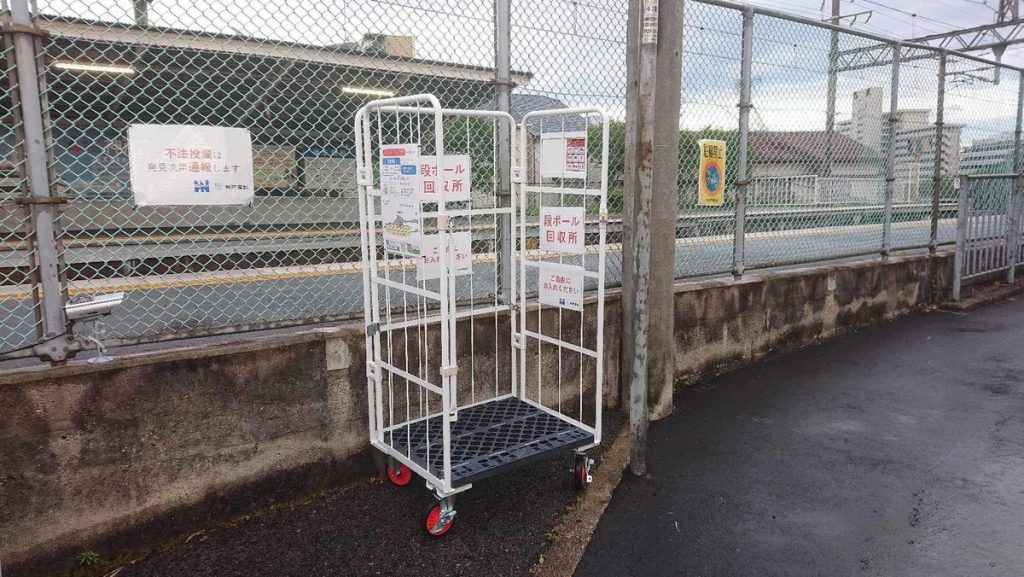3.1. WAKERU project
Social Bridge has a vision to create a sustainable future. Currently Social Bridge is creating a sustainable model in the field of circular economy based on one of its core businesses as a recycled resource wholesaler specifically for waste paper.
The WAKERU (stands for “divide” in Japanese) project, launched by Social Bridge in 2024, aims to formulate a new culture of resource circulation through dividing resources and wastes. The most effective approach to reduce wastes is to lower the usage of natural resources. Then, the concept of reuse becomes important, since it reduces the amount of new natural resources used in another production cycle. In this circumstance, collection and division of wastes takes an important role to reuse efficiently.
Here are the case studies practiced by Social Bridge in Kobe City, Hyogo.
3.2. case study 1: Nagasawa Bungu
- Key players
- Nagasawa Bung Center Co, Ltd.: Retailer of stationery
- Social Bridge: Collector of renewable wastes
- Background: Given the current social pressure to reduce wastes, Nagasawa was willing to develop a new strategy to reduce used stationary, whereas Social Bridge was aiming to reduce wastes through collection wastes and dividing them into renewable resources and garbage.
- Project overview
- Objective: to identify how much impact the project can create among partners, Nagasawa and companies to implement its recycling box.
- Method: Recycling boxes are set at partner companies’ offices, and Nagasawa Stationery Center collects them on the way back when they supply new stationery. Nagasawa stores them temporarily, and then Social Brdige collects them.
- Currently a trial project was implemented and is ongoing at ANCHOR KOBE, a community space for multi-sectors, from September 30th to October 18th 2024. By putting a collection box and demonstrating how to collect used stationery and paper, it is observed how users at ANCHOR KOBE would change their behavior.
3.3. case study 2: Kobe dentetsu
- Key player
- Kobe Electric Railway Co.,Ltd: Railway operator
- Social Bridge: Collector of renewable wastes
- Background
- Railway companies in Japan are willing to commit to develop local communities along their railways, which is expected to lead to higher economical benefits to both the local community and a company itself. Currently the ESG perspective has been added to that approach, and therefore there are various sustainable actions taken by the railway companies, including Kobe Electric Railway.
- Collaborating with Kobe City, Kobe Electric Railway is one of the leading companies to develop areas along its railway by addressing positive impacts on both the economy and environment.
- Project overview:
- Objective: to identify how much impact the project can create among railway uses by setting up a collecting box for used cardboard.
- Method: cardboard collection station was set at Nagata Station, next to a box to receive products from EC

